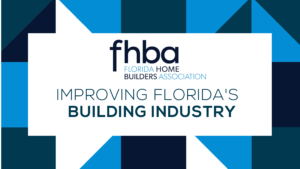[cmsms_row data_padding_bottom=”50″ data_padding_top=”0″ data_overlay_opacity=”50″ data_color_overlay=”#000000″ data_bg_parallax_ratio=”0.5″ data_bg_size=”cover” data_bg_attachment=”scroll” data_bg_repeat=”no-repeat” data_bg_position=”top center” data_bg_color=”#ffffff” data_color=”default” data_padding_right=”3″ data_padding_left=”3″ data_width=”boxed”][cmsms_column data_width=”1/1″][cmsms_text animation_delay=”0″]
 Impact Fee Legislation
Impact Fee Legislation
- Sponsors:
- Senator Joe Gruters
- Representative Nick DiCeglie
- Define infrastructure:
- Ensure impact fees are going towards true infrastructure needs/capital projects (brick and mortar) and not frivolous materials that are most likely used to inflate the calculations and show a false need for higher impact fee rates.
- Impact Fee Caps:
- Caps annual impact fee increases at 3 percent.
- Recently in May, Hillsborough County adopted impact fee increases by 100 percent. Once the increase is fully adopted, total impact fees on a new single-family home built in the county will be $28,000. Amid an affordable housing crisis, coupled with high unemployment and low inventory – artificially inflating the costs of new homes through fees will only exacerbate housing issues in the state.
- In October of 2020, the City of Punta Gorda increased their impact fees on residential housing by 300 percent.
- Ensure Credits for Exactions:
- Ensures that if/when a local government entity makes an additional demand on a developer, that the developer is provided a credit towards his impact fee for any additional exaction – e.g., providing additional infrastructure, land dedication, etc. This statute is already in place for public education facilities and school impact fees.
- Prevents Local Governments from Collecting Undirected and Unplanned Impact Fees
- Ensure local governments only collect impact fees if they have a planned or funded capital improvement within the applicable impact fee assessment district at the time that the fee must be paid.
- Local Government Attestation:
- Requiring an affidavit signed by the CFO of the local government that all impact fees were collected and expended in full compliance with the law.
- Ensuring local government officials who use impact fees to pay off existing debts are held accountable.
- Requiring an affidavit signed by the CFO of the local government that all impact fees were collected and expended in full compliance with the law.
[/cmsms_text][/cmsms_column][/cmsms_row][cmsms_row data_padding_bottom=”50″ data_padding_top=”0″ data_overlay_opacity=”50″ data_color_overlay=”#000000″ data_bg_parallax_ratio=”0.5″ data_bg_size=”cover” data_bg_attachment=”scroll” data_bg_repeat=”no-repeat” data_bg_position=”top center” data_bg_color=”#ffffff” data_color=”default” data_padding_right=”3″ data_padding_left=”3″ data_width=”boxed”][cmsms_column data_width=”1/1″][cmsms_text animation_delay=”0″]
Construction Defects Legislation
- Sponsors:
- SB 21 by Senator Keith Perry
- HB 270 by Representative Alex Andrade
- The “Notice and Right to Cure” law was created in 2003 to have an alternative method to resolve construction disputes and most importantly, keep claims out of the court room. When the process is not taken advantage of; an owner will notify their contractor of a problem on a project, the contractor will inspect it, and they together will determine best course of action through direct communication.
- However, under current practices we see law firms issuing cookie cutter 558 claims, many of which are hundreds of pages long, to contractors and their teams. Unfortunately, the notices to contractors about the alleged defects often lack specificity by using broad language and not identifying the specific location of the alleged defect. Further, offers by home builders to repair the alleged defects are routinely rejected as a small group of attorneys are looking for financial settlements instead of fixing the problem.
- This legislation:
-
- Defines “material violation”;
- Requires claimants to exhaust warranty options prior to seeking recourse under Chapter 558;
- Requires specific detail surrounding defect and some visible proof of issue;
- Requires claimants to attest that they have personal knowledge of the alleged defect; and
- Requires notice to mortgagee/assignee of any 558 claim that resulted in a monetary settlement, the nature of the defect, the outcome of the claim, whether the defect was repaired, etc.
[/cmsms_text][/cmsms_column][/cmsms_row][cmsms_row data_padding_bottom=”50″ data_padding_top=”0″ data_overlay_opacity=”50″ data_color_overlay=”#000000″ data_bg_parallax_ratio=”0.5″ data_bg_size=”cover” data_bg_attachment=”scroll” data_bg_repeat=”no-repeat” data_bg_position=”top center” data_bg_color=”#ffffff” data_color=”default” data_padding_right=”3″ data_padding_left=”3″ data_width=”boxed”][cmsms_column data_width=”1/1″][cmsms_text animation_delay=”0″]
Building Code Legislation
- Sponsors:
- Representative Elizabeth Fetterhoff
- Discourage Local Governments from Bypassing the Local Amendment Process:
- Local governments can amend the statewide Florida Building Code by filing local amendments to the technical provisions of the Code that have local or regional impact.
- Note: Current law states that all local technical amendments to the Florida Building Code must be submitted to the Florida Building Commission and show a specific need.
- Issue: Local governments are circumventing the technical amendment process (and therefore not showing a specific need) by including building code provisions in their zoning and development codes, such as electrical outlet requirements, mandating “electric vehicle ready” charging in new garages, solar requirements, etc.
- Any regulation, law, ordinance, policy, amendment, or land use/zoning provision that a substantially affected person believes is a technical amendment to the Florida Building Code, may file a petition to the Florida Building Commission for a nonbinding advisory opinion stating whether the commission interprets the provision as a technical amendment to the Florida Building Code.
- Florida Building Commission Authority to Issue Errata to the Code:
- Gives the Florida Building Commission the authority to issue errata to the code and correct errors that make the code non-compliant with adopted reference standards; e.g., minimum design loads under the American Society of Civil Engineers (ASCE) 7, without reopening the entire code to product manufacturers, special interest, etc.
- Prohibit Jurisdictions from Requiring Building Contracts in Permit Applications:
- Contracts between builders and owners are completed with proprietary information and local governments are subject to the Sunshine Law.
- Some building departments even post contracts with permits in job-site permit boxes.
- Local governments can amend the statewide Florida Building Code by filing local amendments to the technical provisions of the Code that have local or regional impact.
[/cmsms_text][/cmsms_column][/cmsms_row]
